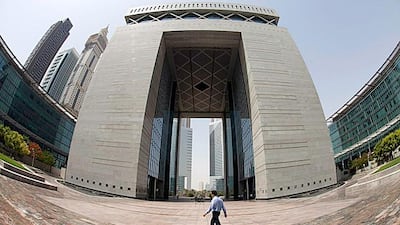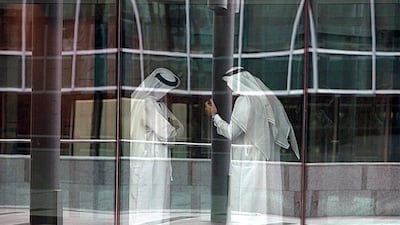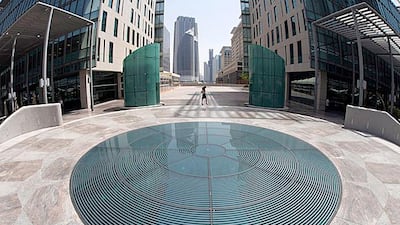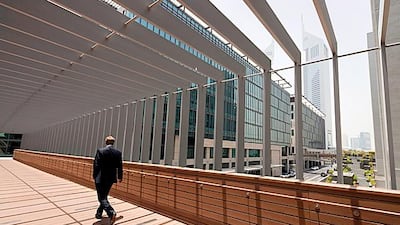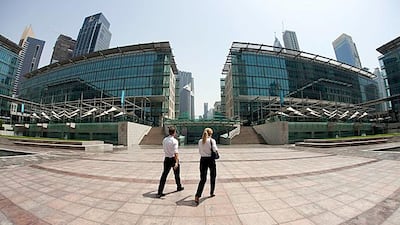Related: Sheikh Hamdan announces new end-of-service savings fund for foreign employees
Dubai’s move to introduce a new savings retirement plan for foreign employees in the government and public sector will boost economic liquidity by attracting qualified professionals to the emirate, according to financial experts.
The decision could also galvanise the private sector to follow suit and reform the current end-of-service gratuity scheme, which would enhance growth opportunities and provide a high quality of life for all, they added.
“The government authorities understand that this is a major change to how gratuity is handled and we will likely see the private sector follow suit very soon,” said Amr Yussif, founder and chief executive of FinFlx, a Dubai-based FinTech that provides gratuity savings schemes for the private sector.
“Chief financial officers and financial controllers in the private sector should use this as an indicator to start adjusting their cash flow models to accommodate monthly contributions towards gratuity liabilities.”
End-of-service gratuities are lump-sum payments that all employed residents are entitled to after completing at least one year of service. Gratuity payments are covered by the UAE Labour Law and the sum depends on an employee’s length of service and their basic salary.
On Wednesday, Sheikh Hamdan bin Mohammed, Crown Prince of Dubai, said the new pension fund would offer the government’s foreign workers a choice of investment plans, including Sharia-compliant options.
The fund, which will be supervised by a board of trustees with assistance from Dubai International Finance Centre, would make the emirate more attractive to people from around the world, he added.
“We are keen to provide all workers in the government sector with everything that guarantees them and their families a decent life,” Sheikh Hamdan said.
“We implement everything that suits Dubai’s aspirations for its government employees in terms of privileges and guarantees that guarantee them their rights and contribute to its development.”
Crown Prince of Dubai
The Covid-19 pandemic has put employee financial issues in the spotlight and many companies are now trying to formulate plans to help workers bridge their savings gap.
A 2020 survey by Mercer found that 45 per cent of foreign employees in the UAE either had no means of maintaining a decent standard of living in their retirement, or plan to work beyond retirement age to derive enough income for their golden years.
A lack of financial awareness was also an issue among respondents, with 61 per cent saying they had no long-term savings.
“Financial literacy is a cornerstone to the success of any financial well-being programme,” Mr Yussif said.
“At the end of the day, it’s equally important to give employees the tools they need to really build their money management skills, beyond simply giving them the option to invest.”
“Employers should choose their savings scheme provider carefully and would benefit from working with companies that offer comprehensive ongoing educational programmes that provide unbiased financial knowledge, rather than selling a product or service.”
The DIFC was the first entity in the UAE to set up a new gratuity system when it introduced the DIFC Employee Workplace Savings plan, or Dews, in February 2020.
The free zone’s employers are required to make monthly contributions of 5.83 per cent or 8.33 per cent of an employee’s wage, depending on their length of service, to a fund administered by a trust.
Employees can also choose to make voluntary contributions to the Dews plan.
In April 2021, Axa Green Crescent Insurance Company also unveiled a workplace savings plan to help UAE employees save for their retirement.
The Employee Secure Saver plan helps companies provide employees with a savings vehicle similar to those available globally, the insurer said at that time.
Employers can tailor the Employee Secure Saver plan to meet specific needs, such as ring-fencing end-of-service liabilities or as a mechanism to offer enhanced benefits as a differentiator in the employment market, the insurer said.
Meanwhile, Dubai’s decision to introduce the retirement savings plan will ensure uniformity for employees, according to Bal Krishen, chairman and chief executive of financial consultancy Century Financial.
“If an automatic system is in place whereby the employee can choose an investment approach according to their risk, it can also boost their savings,” Mr Krishen said.
“This would make Dubai more employee-friendly as the payment of benefits will not depend on the company's financial health … if implemented across the private sector, it can help reduce employee/employer disputes.”
A majority of employers both in the UAE and the wider Middle East pay for their end-of-service liabilities to outgoing employees from working capital.
Seventy-eight per cent of companies in the Middle East do not fund end-of-service gratuity at all, according to a 2020 survey by advisory company Willis Towers Watson. Instead, they pay it out of company cash when the benefits fall due, the study found.
However, in another survey in January this year, Willis Towers Watson found that about 78 per cent of employers in the GCC are planning to develop financial well-being strategies for employees over the next two years to help them bridge their retirement savings gap.
Forty-eight per cent of organisations plan to introduce financial well-being strategies that are effectively communicated to employees, while 30 per cent are considering personalised engagement with workers to support their savings needs for key life milestones, it said.
“The [Dubai government] scheme provides employees an opportunity to save across different financial portfolios to grow their individual savings,” said Mohammed Shaheen, chief executive of brokerage company Seven Capitals.
“This will prove to be a significant expansion, upgrading the nature of the developing monetary climate in the emirate,” he added.


